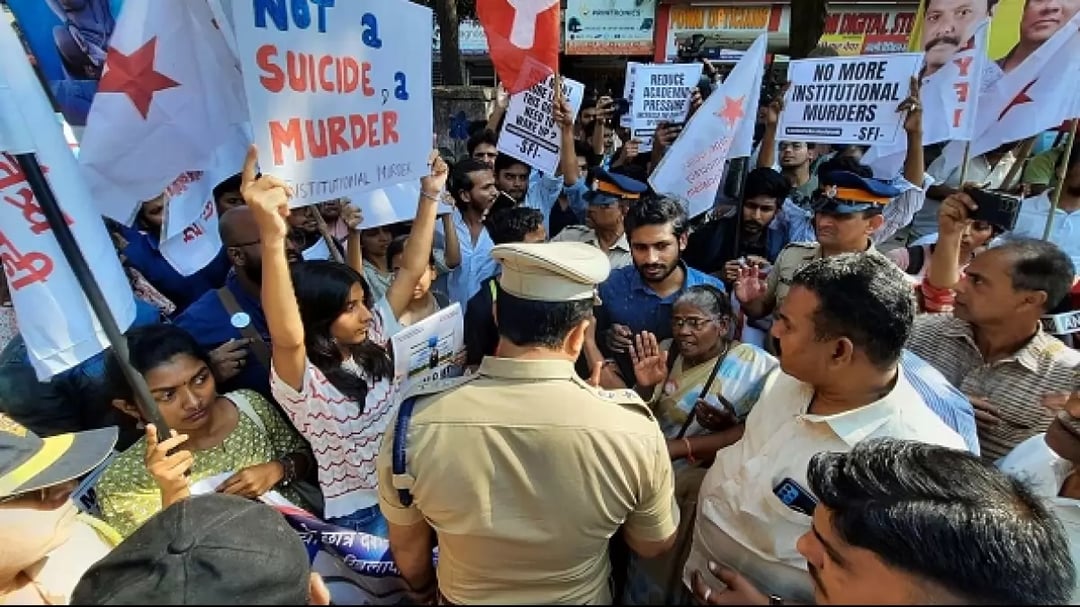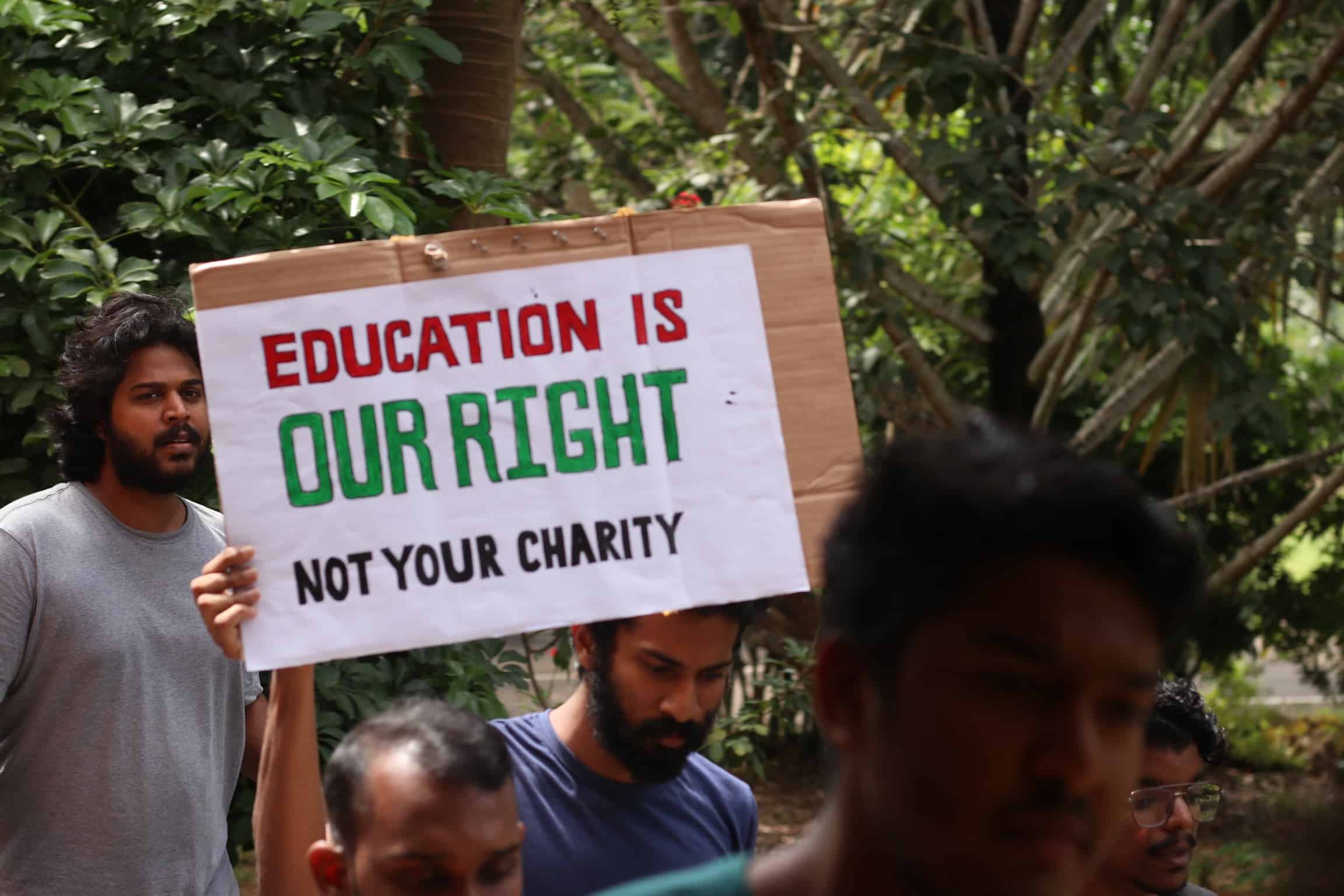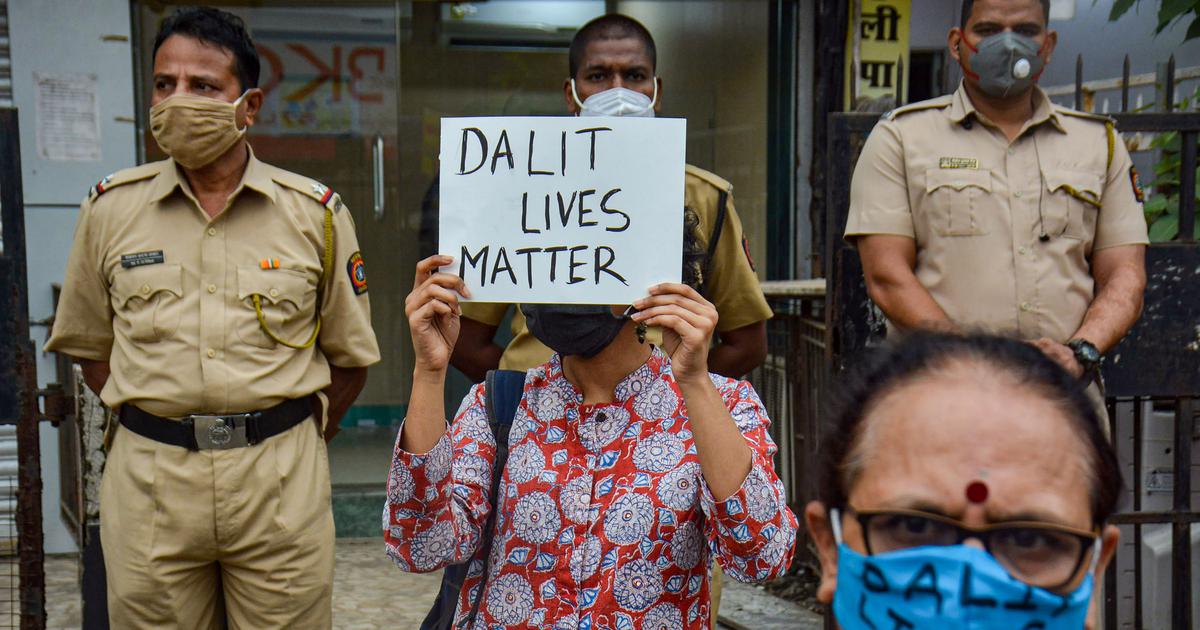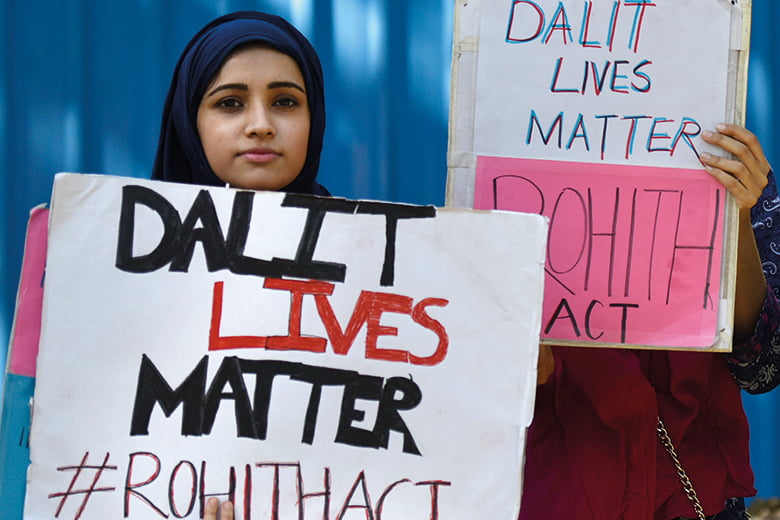In the esteemed corridors of India’s top educational institutions, where brilliance is celebrated and the quest for knowledge reigns supreme, a disturbing reality has emerged in recent years. Every day, the nation is confronted with a deluge of reports detailing student suicides and harassment cases, tarnishing the reputation of these prestigious establishments and undermining the essence of academic pursuit.
According to a report, on February 16th, the Indian Institutes of Technology-Delhi community was struck by yet another tragic loss as they mourned Varad Sanjay Nerkar, marking the third student suicide incident within the institute in recent times.
According to a report, on February 16th, the Indian Institutes of Technology-Delhi community was struck by yet another tragic loss as they mourned Varad Sanjay Nerkar, marking the third student suicide incident within the institute in recent times. This sombre event, coupled with alarming statistics, such as Dheeraj Singh’s revelation that Nerkar’s case was the fifth reported suicide from IITs this year, underscores the urgency of addressing the issue.
Analysing each case within the confined walls of the Indian Institutes of Technology (IITs), it becomes evident that a pervasive shadow of casteism and harassment looms, casting a cloud over the dreams of many. This troubling reality prompts a crucial question: How can these esteemed institutions effectively tackle this pressing issue and ensure a safe and inclusive environment for all students?
Institutional harassment and casteism: the silent killer in educational institutions
One of the prevailing theories behind such tragedies is the spectre of casteism that continues to haunt Indian society. Within the competitive environment of IITs, students from marginalised caste backgrounds often face discrimination and prejudice, exacerbating their struggles. In addition to casteism, the pervasive issue of institutional harassment cannot be ignored. The intense pressure to excel academically, coupled with a lack of adequate support systems, can lead to immense mental and emotional distress among students.
According to the Ministry of Education, nearly 20,000 students from the Other Backward Classes (OBCs), Scheduled Castes (SCs), and Scheduled Tribes (STs) have discontinued their studies across a range of courses offered by central universities, Indian Institutes of Technology (IITs), and Indian Institutes of Management (IIMs) between 2018 and 2023, says the report.
Over the past five years, a total of 6,901 OBC candidates, 3,596 SC students, and 3,949 ST students have discontinued their studies in Central Universities. Similarly, 2,544 OBC candidates, 1,362 SC students, and 538 ST candidates have dropped out of IITs, while 133 OBC, 143 SC, and 90 ST candidates have left IIMs during the same period, the report further stated.
As per a news report that came out last year on 12 February, exactly a year ago, Darshan Solanki, a Dalit student at IIT Bombay, took his own life, purportedly as a result of facing caste-based discrimination.
As per a news report that came out last year on 12 February, exactly a year ago, Darshan Solanki, a Dalit student at IIT Bombay, took his own life, purportedly as a result of facing caste-based discrimination. Despite a police investigation that commenced a month later, with an FIR filed against an unidentified individual for abetting suicide, justice remains elusive. The authorities invoked relevant sections of the Scheduled Castes/Scheduled Tribes (Prevention of Atrocities) Act.
Regrettably, as we mark the passage of a year since this heartbreaking event, the data reflects a distressing trend: a surge in similar occurrences. Today, we find ourselves at a disheartening impasse, bearing witness to the dashed hopes and aspirations of numerous young talents, their dreams left tragically unfulfilled.
What silences the students to talk about this?
According to reports, efforts to understand the situation included holding discussions with students from IIT-Delhi and IIT-Bombay, as well as with Prof N. Sukumar where students chose to remain anonymous during these discussions due to concerns about facing repercussions.
Taking a closer look at the choice of students who want to keep their anonymity in disclosing the harassment, it is evident that the students within IITs remain silent about caste discrimination and institutional atrocities due to fear of reprisals and academic repercussions. The anonymity of those who speak out underscores the pervasive climate of intimidation.
A student revealed, ‘I spoke to the press after Ayush’s case and faced threats from the administration.’ A final-year student from the Dalit community, Ayush Ashna (20), died by suicide in Indian Institutes of Technology-Delhi on 8 July last year.
A final-year student from the Dalit community, Ayush Ashna (20), died by suicide in Indian Institutes of Technology-Delhi on 8 July last year.
The sanitised language around student deaths, such as using ‘suicide‘ instead of ‘institutional murder,’ fails to address systemic issues. Instances of academic retaliation, like tougher re-tests for students with health issues, deepen this culture of fear. Complex student-supervisor dynamics further deter students from speaking out against harassment. Addressing these systemic failures requires structural reforms to foster accountability, transparency, and inclusivity within academic institutions.
Delhi University Professor and author N. Sukumar also has emphasised the urgency of replacing the term ‘suicide’ with the term ‘institutional murder’ when addressing student deaths in IITs.
Another IIT-Delhi student disclosed, ‘If a student misses an exam due to health issues, the professor administers a tougher re-test, seemingly seeking revenge.’
According to the reports, Nerkar’s parents have claimed that their son endured harassment from his supervisor, highlighting the challenges students encounter. Despite numerous leads and evidence urging authorities to take action and curb the alarming trend of student deaths, the government and relevant authorities seem to be maintaining the status quo. The pressing need to identify the root causes and cultivate a safe environment for young minds remains a distant concern, showing the numerous reports of institutional harassment and suicide incidents.
Are IITs and IIMs becoming enclaves for the savarna community?
As per the recent reports, Former Education Minister Ramesh Pokhriyal’s revelation in 2019 highlighted that a staggering 95% of faculty positions in IITs were held by individuals from Savarna backgrounds, leaving a mere 5% for SC, ST, and OBC categories, which constitute 70-80% of India’s population. An RTI filed by IIT-B students further exposed disparities, with 24 departments lacking SC faculty, 15 lacking ST representation, and 9 lacking OBC faculty.
These trends extend beyond faculty positions. From 2015 to 2022, several departments at IIT-Bombay and IIT-Delhi saw no admissions of ST students for PhD programs, while others closed their doors to SC students. In 2023, this exclusionary trend persisted with six departments at IIT-Delhi rejecting OBC PhD candidates, the reports further revealed.
Additionally, statistics revealed by the Minister of State for Education indicate a troubling trend of OBC, SC, and ST candidates withdrawing from IITs since 2018. And how Professor Sukumar highlighted exclusionary teaching practices within IITs, citing instances of preferential treatment based on student rankings, disproportionately affecting reserved category students. He recounted a distressing case from IIT-Roorkee where a student faced dismissal from the supervisor despite repeated revisions to thesis chapters. Criticism against IITs persists for fostering casteism, evidenced by tragic deaths of Bahujan students, casteist slurs by Associate Professors, and issues like the absence of functional SC/ST cells. Allegations extend to practices like segregation based on vegetarianism and land allocation for a gaushala at IIT-Bombay. The resignation of professors like Vipin Veetil reinforces the perception of IITs as Savarna enclaves.
With these data unveiled, the question remains the same: are these prestigious institutions truly reflective of the nation’s diversity, or are they becoming bastions of privilege for the Savarna community?
Why is progress lacking in vital actions, even after student death polls?
The lack of progress in addressing issues of casteism and institutional harassment within India’s premier educational institutions is a cause for deep concern. Despite repeated calls to action, tangible change has been slow to materialise, while tragic incidents such as student deaths continue to occur with alarming frequency.
Efforts to confront these entrenched problems have been met with resistance and bureaucratic inertia, hindering meaningful reform. The recent recommendation, as per reports, by a committee established by the Ministry of Education to scrap the reservation policy in IITs is a glaring example of the disconnect between rhetoric and action.
While student deaths serve as stark reminders of the urgent need for change, they should not be the only catalyst for action.
While student deaths serve as stark reminders of the urgent need for change, they should not be the only catalyst for action. It is imperative that all stakeholders, including government officials, educational authorities, faculty members, and students, prioritise addressing these systemic issues through concrete measures and proactive initiatives.
The persistence of caste-based discrimination and institutional harassment within educational institutions not only undermines the principles of equality and justice but also perpetuates cycles of marginalisation and exclusion. Meaningful progress can only be achieved through sustained commitment, genuine dialogue, and collective action aimed at fostering a culture of inclusivity and respect within India’s academic landscape.
In conclusion, it is imperative that the nation collectively commits to translating calls for action into tangible reforms to ensure that educational institutions are truly equitable and inclusive for all students, regardless of caste or background.









